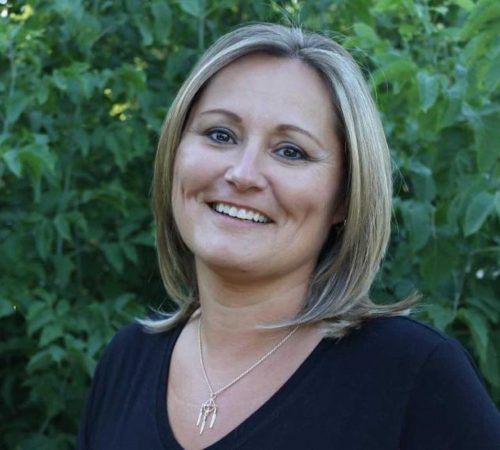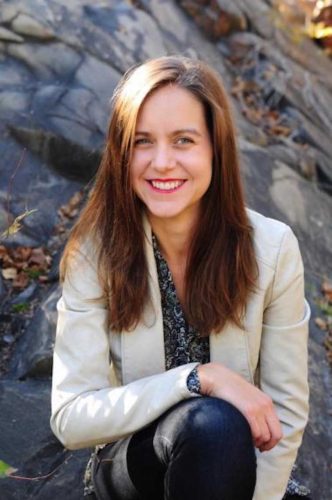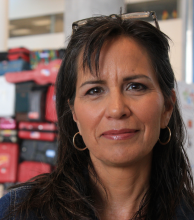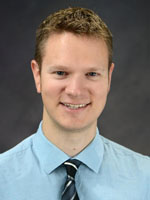
The University of Guelph has hired six new Aboriginal faculty members over the past two years as part of a strategy that is changing the University’s perspective and culture by advancing reconciliation.
The tenure-track positions span six of the University’s seven colleges.
Along with the new hires, the strategy also includes additional supports for Aboriginal students and researchers.
Charlotte Yates, provost and vice-president (academic), initiated the strategy to attract more Aboriginal academics to U of G and make the University more accommodating to First Nations, Métis and Inuit scholars and learners.
“I am very proud and pleased with the outcome of the decision to make a cluster hire of six Aboriginal faculty,” Yates said. “All of these faculty are making amazing contributions to their academic units, as well as impacting the entire campus.”
The new faculty members, Yates said, are increasing awareness of important issues, building valuable community partnerships, enhancing supports for Aboriginal students and expanding the research excellence of the University. Together, they are shifting how the University understands and interprets the world, she added.

The hires were part of a “generational strategy” that included enhanced graduate scholarships, undergraduate research assistantships and funding to support an Aboriginal post-doctoral fellowship.
Cara Wehkamp, special adviser to the provost on Aboriginal initiatives, says the initiative reflects a strong commitment by the University to work toward reconciliation and to engage Aboriginal scholars and ways of knowing, doing and being.

“The establishment of a multi-faceted approach to opening spaces and opportunities for First Nations, Métis and Inuit students, faculty and scholarship broadened the conversation across the campus and within the community,” says Wehkamp.
Representing various disciplines, the new faculty highlight the diversity of Aboriginal scholars and enrich the quality and diversity of teaching and research at the University, Wehkamp adds.
“Post-secondary institutions carry a history of the exclusion of First Nations, Métis and Inuit peoples, cultures and knowledges. As we work to decolonize our campus and increase the numbers of Aboriginal faculty, their presence contributes to a positive shift in our learning environments which helps Aboriginal learners see a place for themselves and inspires them to pursue their educational goals.”
Yates says she learned at other universities that supporting individual Aboriginal faculty and students was not enough to effect significant change.
“We needed to build a critical mass of Aboriginal faculty on the University campus who could chart their own course and guide us in the transformation of the campus to become more inclusive, more understanding of Aboriginal affairs and help us break down barriers to success of Aboriginal faculty and students,” she says.
“Beyond their academic units, these Aboriginal faculty work collaboratively to support one another. They are forming a cohort of excellence for the campus that I have no doubt will have a transformative impact.”
The new faculty members are:
Prof. Brittany Luby, Department of History: Luby’s critical and creative work, as well as her poetry, have appeared in numerous publications. Her research interests include Anishinaabe history of the Great Lakes, environmental equity, and Anishinaabe labour and resistance. She is particularly interested in writing as a tool for reconciliation. Of mixed Anishinaabe descent, she is a Treaty # 3 woman with ancestors from the Ochiichagwe’Babigo’Ining Ojibway Nation.


Prof. Anita Tucker, Department of Population Medicine: A specialist in animal behaviour, Tucker studies animal welfare and production, particularly in swine. A Credit River Métis, she is an expert in Aboriginal community engagement. She incorporates advocacy for Indigenous peoples and veterinary outreach in her research and teaching.
Prof. Kim Anderson, Department of Family Relations and Applied Nutrition, and holder of a Canada Research Chair: Anderson, a Métis, studies health and well-being of Indigenous families in Canada. She has published on Indigenous health and social well-being, gender and Indigenous identity, and traditional knowledge.
Prof. Sheri Longboat, School of Environmental Design and Rural Development: Longboat, a Mohawk from Six Nations of the Grand River, brings 20 years of experience working with First Nations communities to research issues around water security and collaborative governance. Her applied research seeks to connect First Nations communities as well as government and industry partners to address the challenges facing Indigenous peoples in Canada.

Prof. Christopher Collier, School of Engineering: Collier has an electrical engineering background and studies optics and photonics, particularly for applications in spectroscopy and microsystems. He is Métis.
Prof. Melissa Perreault, Department of Molecular and Cellular Biology: As a neuroscientist, Perreault uses animal models to find more effective treatments for neuropsychiatric and neurodegenerative diseases. She hopes to learn more about the workings of depression, schizophrenia and Alzheimer’s disease. She is Métis of Algonquin ancestry.